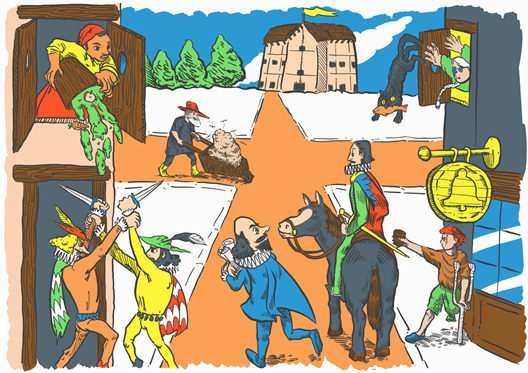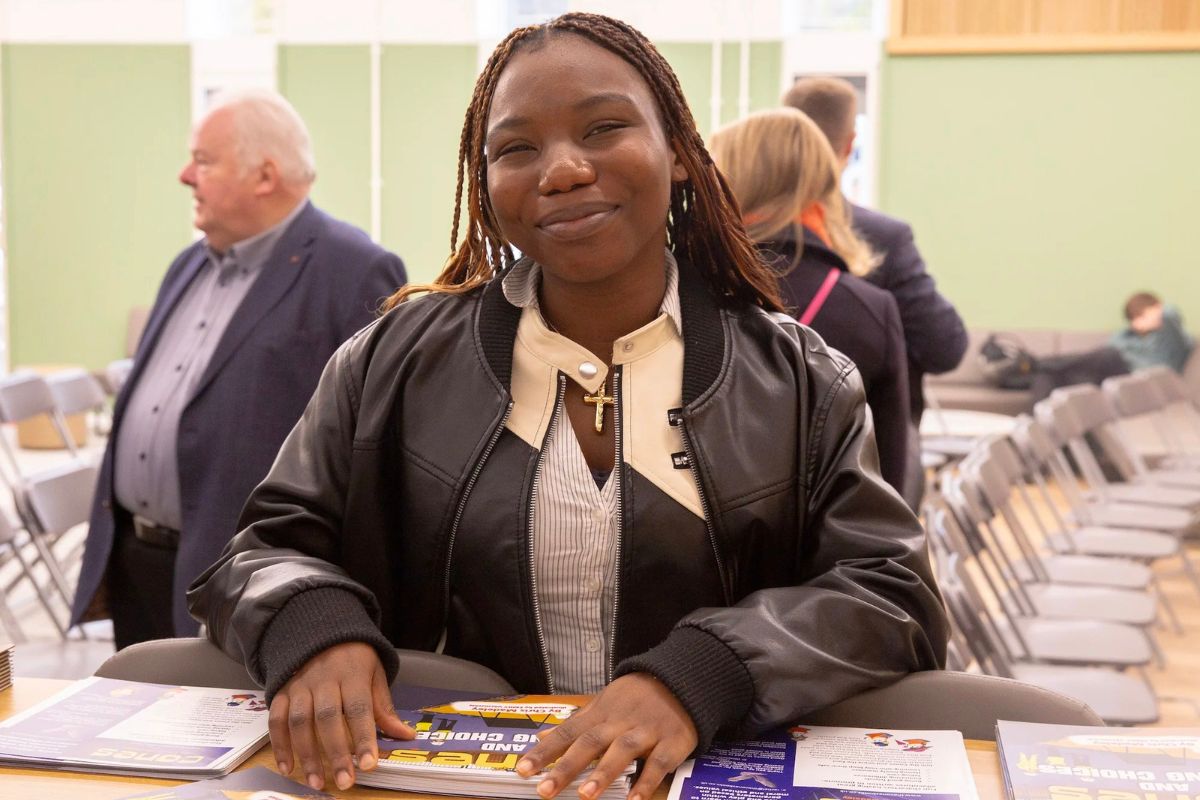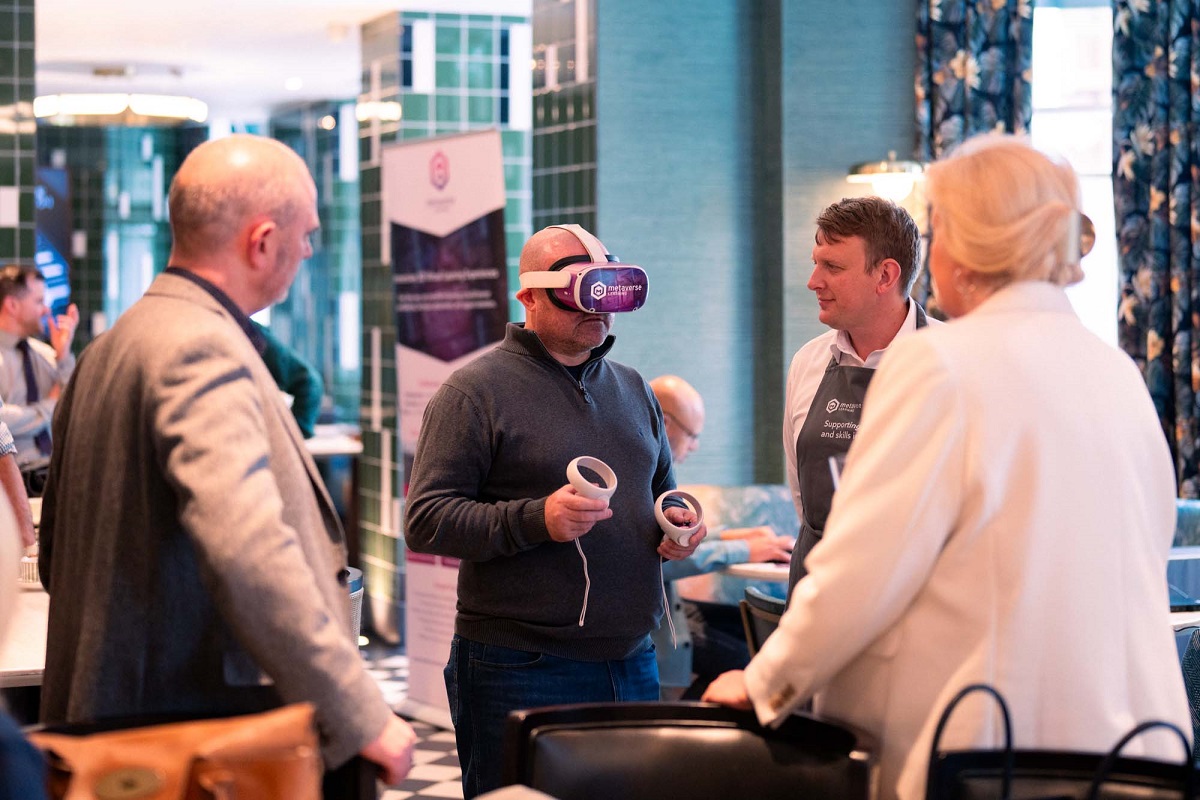Online learning platform A Bit Lit follows launch with course on Elizabethan Theatres

“Bright and Fun…The wealth of new information really impresses, but the way it’s delivered makes sure that no-one gets left behind.” * * * * Reviews Hub on A Day Out At Shakespeare’s Theatre #ABitLit #ShakespeareDayOut @a_bit_lit
How to Make an Elizabethan Theatre
14 Feb – 18 Mar, new content weekly, watch in your own time
Following a successful launch event in mid-January, A Bit Lit is pleased to announce its first follow-on course. How To Make An Elizabethan Theatre will offer a more-in depth look at the world of theatre in Shakespeare’s time.
While launch event A Day Out at Shakespeare’s Theatre took place over two hours, How To Make An Elizabethan Theatre will take place over four weeks, with a private film posted weekly to YouTube for audiences to watch in their own time, accompanied by a weekly live Q&A session and a reading list themed to that week’s topic. Animation and images will bring the topics discussed to life.
Open to both attendees of the launch event and those new to A Bit Lit, How To Make An Elizabethan Theatre will be led by teacher, theatre historian and co-founder of A Bit Lit, Andy Kesson. Andy led the first research project on the earliest years of the playhouses, has written extensively on early plays and worked with major mainstream and fringe and experimental theatre companies to stage these plays now. Andy has been repeatedly nominated for teaching awards by his students at Roehampton and Kent Universities and is currently part of the Box Office Bears research project, looking at the lives of performing bears in Tudor England.
The course is suitable for anyone from ages 14 and up with an interest in theatre or broader cultural history including those studying the period at school, college or university. Each week’s film will focus on Elizabethan theatre from a different perspective, taking in the people making the theatre, the people writing plays for it, the people acting and watching it and the characters brought to life onstage
Speaking about the course, Andy Kesson said “I’m so excited to take a period of literary and theatrical history we think we know well and see it through the eyes of the people who worked, ran and spent leisure time in the theatres. We’ve been taught to think of Shakespeare’s theatre as the preserve of the powerful, as all-male, as all-white and able-bodied, and this course will show that ordinary people, including women, the global majority and the disabled, were key to inventing theatre in Shakespeare’s time”.
A Bit Lit’s mission is to make the latest academic research available to anyone, anywhere, in a fun and interactive format. As part of A Bit Lit’s commitment to bringing performance and research to communities often underserved by theatre and universities, the course (and all future events) will be translated into British Sign Language, live captioned and audio described and transcripts will be available on request. A programme of further interactive events and follow-on courses will soon be announced soon, including topics such as Black Romance Fiction, The History of Dragons and Queer Urban Histories.
A Bit Lit was born on the first day of the UK lockdown, the brainchild of theatre historian Andy Kesson. During the past year and a half, A Bit Lit has posted almost 150 open-access, free videos celebrating research and creative work from Ghostbusters to coconuts, professional wrestling to reading in outer space. Andy is now joined by the Royal Shakespeare Company associate artist and performer Jimmy Tucker to make A Bit Lit a digital platform bringing research and creativity to new audiences.
Listings information
How to Make an Elizabethan Theatre Course
Monday 14 February -18 March (Online video lectures posted weekly to watch in your own time)
Tickets £35
In this course, we consider the theatre of Shakespeare’s time from four unique perspectives: the people making the theatre, the people writing plays for it, the people acting and watching it and the characters brought to life onstage. The course will be delivered by a series of 4 video lectures, and participants will be offered an additional Q&A online session each week. A reading list will also be made available.
Week one: theatremakers: what does it mean to look at London and think, “What this place needs is a theatre?” How do you invent the idea of a theatre, and how do you put it into action? Where do you build one, how do you make money from it, how do you run them? These are questions which Elizabethan entrepreneurs asked themselves, and we’ll ask them ourselves in our first talk. At a time when so much artistic expression was the preserve of an elite, we’ll discover how much important women and ordinary people were in creating and running the earliest theatres, and find out that women who fight by broomstick and men who sell dodgy rhubarb are central to the founding of English theatre.
Week two: writers: once you have theatres, you need to fill them with audiences, and repeat audiences only come back to the theatre if you can offer them new work. What did it mean to write for these brand-new spaces? How did the theatres change the way writers worked? We’ll discover that this is the period that invented the word ‘playwright’, because the theatres brought that job into existence. We’ll meet the literary superstars of this period, many of them forgotten today, as well as playwrights who hated being playwrights, and playwrights who also worked in espionage, money-counterfeiting and atheism.
Week three: actors and audiences: as we’ve been discovering at a time of Covid, theatre is a live, intimate process in which performers and audiences share the same space, time and oxygen. What did it mean to attend a live show? How did audiences and actors respond to each other and these new spaces? We’ll discover how dangerous the theatres could be, collapsing on its audiences, blowing them up with special effects, and something even having actors who stab their audience members to death. But we’ll also hear about the positive effects of theatres: these are spaces that allow you to imagine new futures and think about political change at a time when it was illegal to discuss much of this in public.
Week four: characters: theatres are also full of fake people, characters that the playwrights, performers and audiences all need to imagine to bring them to life. What kind of characters do you meet when you go to the Elizabethan theatre? We’ll encounter Middle Eastern warlords, blasphemous wizards, talking trees, both asexual and polyamorous lovers and trans and non-binary protagonists.
For more information and to book visit https://abitlit.co/events/how-to-make-an-elizabethan-theatre/
#ABitLit #ShakespeareDayOut @a_bit_lit| https://abitlit.co/











Responses